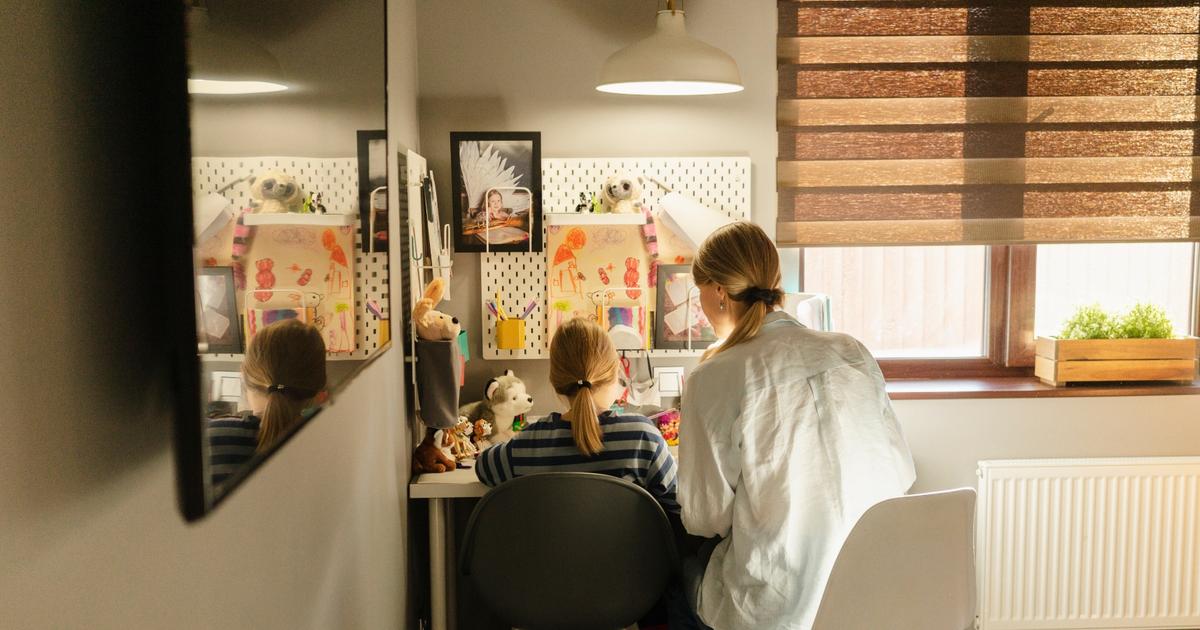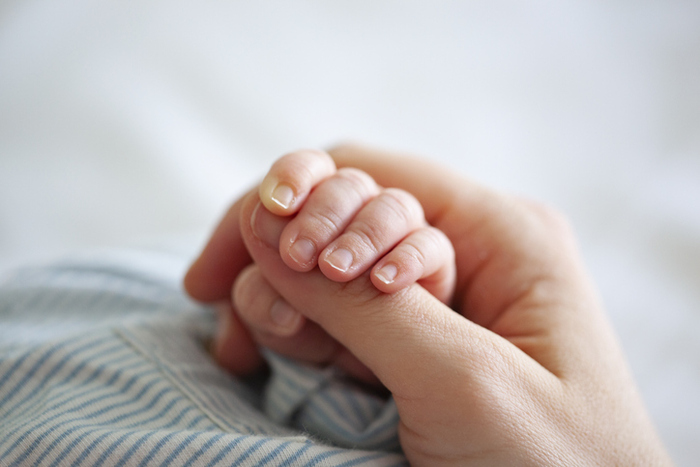- Click to share on Facebook (Opens in a new window)
- Click to share on Twitter (Opens in a new window)
- Click here to share on LinkedIn (Opens in a new window)
- Click to email a friend (Opens in a new window)
(CNN) - Future moms who suffer physical or mental stress during their pregnancies are less likely to have a child and may also have an increased risk of preterm birth, according to a study published Monday.
MIRA: New study links fluoride exposure during pregnancy with a decrease in the IQ in children
"The uterus is a first influential home," said lead author Catherine Monk, director of women's mental health in the obstetrics / gynecology unit at the Irving Medical Center of NewYork-Presbyterian / Columbia University.
"We know that males are more vulnerable in the womb and, presumably, the stress in these women is long-standing," said Monk.
Nature generally ensures that there are an average of 105 children born per 100 female births; after all, males were more likely to die from accidents or wild hunting fights.
But in this study, women who had higher blood pressure and other signs of physical stress had four boys for every nine girls (4: 9 ratio); while mothers who were psychologically stressed had two boys for every 3 girls (2: 3 ratio). All women had healthy pregnancies.
READ: Smoking during pregnancy increases the risk of sudden death of the baby
"Other researchers have seen this pattern of decline in male births related to traumatic catastrophic events," Monk said. "One of them is the assassination of President Kennedy and the other is the terrorist attacks of September 11 in New York City."
Pregnant women who were physically pressured were also more likely to give birth prematurely than mothers without stress. However, future mothers with mental tension had more complications during childbirth, such as a longer labor, than mothers with physical stress.
The role of social support
However, when future mothers received social support, such as having someone to talk to or count on to help them with their problems, the risk of preterm birth disappeared, a surprising discovery, Monk said.
Even more surprising, the more social support a mother received, the more chances she had of having a baby boy.
"The support could be from family and friends," Monk said. “It could be a sense of belonging in a religious community. It is the sense of social cohesion and social connection that research suggests becomes a buffer against stress experiences. It means you take a break. ”
LOOK: Taking vitamins during pregnancy reduces the risk of autism
Social support is critical to building trust in a new mother, said Dr. Christina Penfield, an assistant professor of maternal and fetal medicine at the Langone Medical Center at the University of New York, who was not involved in the study.
"Pregnancy is a crucial moment in the lives of women that coincides with a redefinition of oneself, family and community," said Penfield. "Therefore, it is not surprising that several studies have shown that when we provide social support programs to pregnant women we see improvements in their psychosocial outcomes."
Chronic stress and pregnancy
It is estimated that 30% of pregnant women report psychosocial stress due to stress at work or depression and anxiety, according to studies.
While this study did not explore how stress could affect pregnancy, others have pointed out the role of the stress hormone cortisol.
Cortisol is part of the body's "flight or flight" alarm system and is intended to dissipate once the danger has passed. Chronically high levels can increase blood pressure and make an individual more prone to disease.
READ: Pregnancy is more dangerous than skydiving: why should contraceptive advertising be better controlled?
One study found that pregnant women under pressure had higher cortisol levels; These levels were also present in the baby's amniotic fluid at 17 weeks gestation.
"Stress during pregnancy can be harmful to both the mother and the baby," said Laura Berman, assistant clinical professor of obstetrics / gynecology and psychiatry at the Feinberg School of Medicine.
“Being stressed while waiting for a baby can increase a woman's chances of postpartum depression. It can also lead to premature birth and low birth weight, ”added Berman, who was not involved in the study.
However, Penfield warns against focusing heavily on an association between maternal stress and adverse outcomes.
"These studies can only suggest an association and cannot establish causation," he said. “For example, some women who report high stress may also have decreased sleep, irregular or unhealthy diets, or higher rates of substance use. It is not clear if it is the 'stress' that causes the adverse outcome. ”
Stress is part of life.
Stress is part of everyday life. In fact, "good" stress motivates and focuses attention. It is when stress becomes overwhelming or constant that it is not healthy.
"Most women report having experienced at least one stressful event in life in the year before giving birth, so experiencing pregnancy stress is often inevitable," Penfield said.
LOOK: USA provides pregnancy tests to immigrant girls detained since the age of 10
"When faced with stress, the best thing that future mothers can do is minimize the impact of stress on their daily lives and try to maintain good sleep, nutrition and exercise habits," he added.
"I consider meditation to be an incredibly useful tool for managing stress," said Berman. "Unlike exercise, which can be difficult for moms who are very advanced in their pregnancy, meditation works for all stages of pregnancy and all sizes of women."
Another useful tool, Berman said, is pregnancy support groups, as well as couples therapy for mothers and future parents who want to make sure their relationship is on the right track before the baby arrives.
Monk suggests that the best time to plan a stress-free pregnancy is just when prenatal care begins.
“Why don't you register and wonder how you handle stress? Do you have tools? Need more help? Where will the extra help come from? I think it's the ideal time to do it. ”
Pregnancy stress









